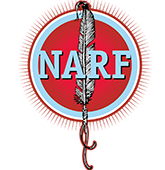Another way that ICWA differs from conventional child welfare laws is that it mandates “active efforts” to keep children with their families or tribe. In most regular child protection cases, social-service workers are obligated to provide “reasonable efforts” to help parents and children reunify, such as offering lists of treatment facilities, therapists, affordable-housing agencies or other resources that could help parents get their lives back on track. “Active efforts,” by contrast, require social-service agencies to do more, such as supplying bus tokens, phone cards and rides to get to those services, says White Hawk. In addition to providing attorneys for qualifying ICWA family cases, the law center also employs “Indian advocates” and “parent mentors,” individuals who meet with families, help them to get appointments and find housing, and go with them to court to explain how the process works. It’s more-intensive support, but advocates say that it is what their clients need. “Our families are coming to us in crisis most of the time,” Smith told me. “So having those connections and helping them walk through what that process can be like, and giving them hope along the way, makes all the difference.” Those sorts of active efforts, she adds, should be used for all families, regardless of background.
Read the full article at the Washington Post website.
